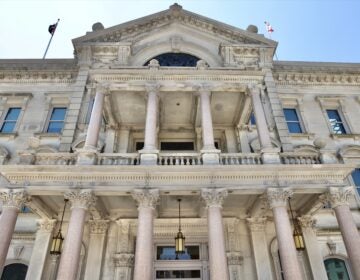The moral case for rejecting immigration amnesty and expansion.
We hear a lot from the Obama administration and big business and the immigration advocacy groups about the moral reasons why Congress should enact the Senate bill providing an amnesty for immigration law violators and a tripling of legal immigration over the next decade. But we don’t hear much about the moral reasons why Congress should not do that. Here they are:
According to the latest Bureau of Labor Statistics jobs report released on December 6, 2013, for the month of November, there are officially 11 million unemployed American workers, over 4 million of whom are considered long-term unemployed. There are also officially 8 million involuntary part-time workers who can’t find full-time jobs, and officially 800,000 discouraged workers who have given up looking for work after concluding there are no jobs available for them.
Adding up those numbers means there are officially about 20 million unemployed and underemployed American workers, 1.3 million of whom are going to exhaust their unemployment benefits as of December 28, 2013. The official unemployment rate remains at a high 7% of all Americans who want to work. And the labor participation rate of Americans who could work is near a record low.
And the unemployment rate is 10% for post-9/11 veterans. For veterans! It’s 12.5% for African-Americans, and 18.6% for teenagers seeking work. The official unemployment rate is 35.8% for African-American teenagers seeking work. That’s an outrage.
Over 47 million Americans, about 1 in 6, qualify for and receive food stamps, including many of those counted as employed at full-time jobs, because they can’t earn enough to get their families above the poverty level.
President Obama tells us that rising income inequality is tearing at the social fabric of America. He calls inequality “the defining challenge of our age”, and pledges to make it a major focus of his remaining time as President.
A widely-publicized economic study from the University of California at Berkeley tells us that in President Obama’s first term from 2009 to 2012, incomes of the top 1% of American households grew by more than 31%, while the incomes of the bottom 99% of American households grew only 0.4% on average, confirming what seems obvious, that many American families are losing ground even as the stock market hits record highs.
How does President Obama think unemployed and underemployed Americans will find better jobs if millions of illegal immigrants are legalized and able to compete openly with Americans for jobs? How will they manage if in addition the number of legal immigrants is tripled from about a million each year to about three million? How realistic are their hopes for higher wages if the pool of labor in which they compete is expanded through additional immigration as the President advocates? Is income inequality reduced or enhanced when millions of additional low-wage immigrants are added to the legal labor pool?
The moral argument for keeping legal immigration at current levels and enforcing existing laws to reduce illegal immigration is that we first have to be concerned about the welfare of American families struggling to survive at or below the poverty level. Just as when a member of our immediate family is seeking a job, we hope that family member gets it rather than someone else, so it is understandable that if jobs are available we hope they can be had by our extended family or by our larger community of fellow Americans.
Here’s an important point: If so-called immigration reform is rejected and we are left with the current immigration system, we will continue to have the most generous legal system for immigration in the world. The U.S. continues to admit each year more permanent legal immigrants with a clear path to full citizenship than all the rest of the nations of the world combined. As I testified to the U.S. Senate Judiciary Committee on March 20, 2013, that is an immigration system worthy of American values.
And as President Bill Clinton said in a commencement speech at Portland State University in Oregon on June 13, 1998, “It is wrong to condone illegal immigration that flouts our laws, strains our tolerance, taxes our resources. Even a nation of immigrants must have rules and conditions and limits, and when they are disregarded, public support for immigration erodes in ways that are destructive to those who are newly arrived and those who are still waiting patiently to come.”
WHYY is your source for fact-based, in-depth journalism and information. As a nonprofit organization, we rely on financial support from readers like you. Please give today.




